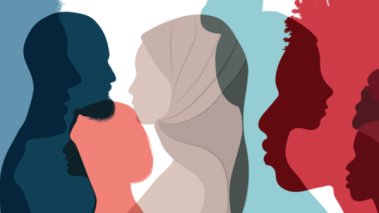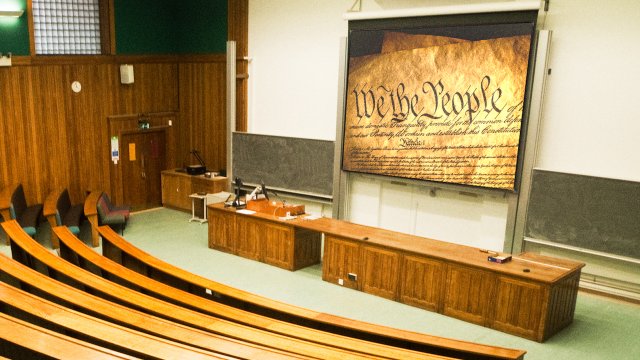Table of Contents
Supporting diversity on campus requires reining in restrictive DEI programs

This article originally appeared in the Washington Examiner on Sept. 28, 2023.
Higher education is the key to upward mobility.
Fostering a welcoming, discrimination-free environment in our colleges and universities helps students of all backgrounds have the chance to succeed. Academic institutions across the country have given this as their reason for investing millions of dollars in diversity, equity, and inclusion, or DEI , programs.
Unfortunately, DEI offices have too often strayed from this noble purpose by inappropriately injecting themselves and their political perspectives into discussions of curriculum, as well as faculty hiring, reappointment, evaluation, promotion, or tenure decisions. No matter how well intentioned, these ideological impositions on critical aspects of higher education are a step too far and often undermine the very goals they seek to accomplish.
When public institutions of higher education seek to compel students, faculty, and applicants to conform to a particular ideological position, they are not just setting bad policy. They are violating the free speech and academic freedom rights they are legally bound to uphold. Colleges that narrow the field of acceptable ideas and police speech stop being educational institutions and become indoctrination factories.
So, how should colleges ensure the learning environments they provide support students of diverse backgrounds without violating academic freedom?
For example, in 2020, the University of Utah’s Communications Department adopted an Anti-Racist Code of Conduct , which “impos[es] an affirmative obligation on all Departmental members to engage in anti-racist actions and support anti-racist Department institutions and norms.” The ARCC, which is under review and not in effect, further declared that students and faculty in the department must “work intentionally to eradicate speech or actions that stereotype, inferentially identify, culturally discriminate against, or harm people of color.”
Similarly, recently enacted California Community Colleges regulations require all faculty to “acknowledge” that “cultural and social identities are diverse, fluid, and intersectional” and incorporate “anti-racist” viewpoints into classroom teaching. The Foundation for Individual Rights and Expression is challenging the regulations in a federal lawsuit filed last month. The First Amendment simply does not allow the government to force professors to teach and preach political points of view they do not share.
Academia loses its value when it demands conformity. We must not filter out free thinkers and dissenters in our quest for increasing academic opportunity.
At Texas Tech University, public records revealed that its biology department adopted a DEI motion to “require and strongly weight a diversity statement from all candidates,” resulting in numerous instances in which candidates were screened for conformity with the institution’s narrow view on diversity. In one such example, a search committee negatively flagged a candidate for endorsing race neutrality in teaching. The candidate’s evaluation notes that he “mentioned that DEI is not an issue because he respects his students and treats them equally.” In February, the university rescinded the policy and launched a review of its hiring practices.
Unfortunately, the problem is not isolated to these few examples. According to the New York Times , nearly half of the large universities in America require those seeking faculty positions to submit statements confirming their commitment to diversity, equity, and inclusion.
For over six decades, the Supreme Court has recognized that academic freedom is of “transcendent value.” In 1967’s Keyishian v. Board of Regents decision, Justice William Brennan wrote: “The nation’s future depends upon leaders trained through wide exposure to that robust exchange of ideas which discovers truth out of a multitude of tongues, rather than through any kind of authoritative selection.” DEI mandates, to the contrary, use raw power to force conformity and weed out dissent.

What happens when America's future leaders reject the liberty on which it was founded?
News
A survey conducted this year by FIRE found that almost one-third of respondents could not name a single right protected by the First Amendment.
So, how should colleges ensure the learning environments they provide support students of diverse backgrounds without violating academic freedom?
First, they must abandon tests that screen faculty out of consideration for hiring or promotion on the basis of their views on DEI or any other political ideology. The eagerness of institutions to use these unconstitutional litmus tests prompted FIRE to author the Intellectual Freedom Protection Act — model legislation that stops this practice without precluding committees from “considering, in good faith, a candidate’s scholarship, teaching, or subject-matter expertise in their given academic field.”
Lawmakers must also reject banning particular perspectives on DEI. Rather, they should enact legislation to protect students and faculty's rights to speak freely on all topics by guaranteeing free speech and academic freedom rights .
Academia loses its value when it demands conformity. We must not filter out free thinkers and dissenters in our quest for increasing academic opportunity. In fact, the only way to open the path to greater human flourishing is by guaranteeing that no idea is off limits for debate and discussion.
Recent Articles
FIRE’s award-winning Newsdesk covers the free speech news you need to stay informed.

Texas tramples First Amendment rights with police crackdown of pro-Palestinian protests

Here’s what students need to know about protesting on campus right now

Kansas takes a stand for intellectual freedom


